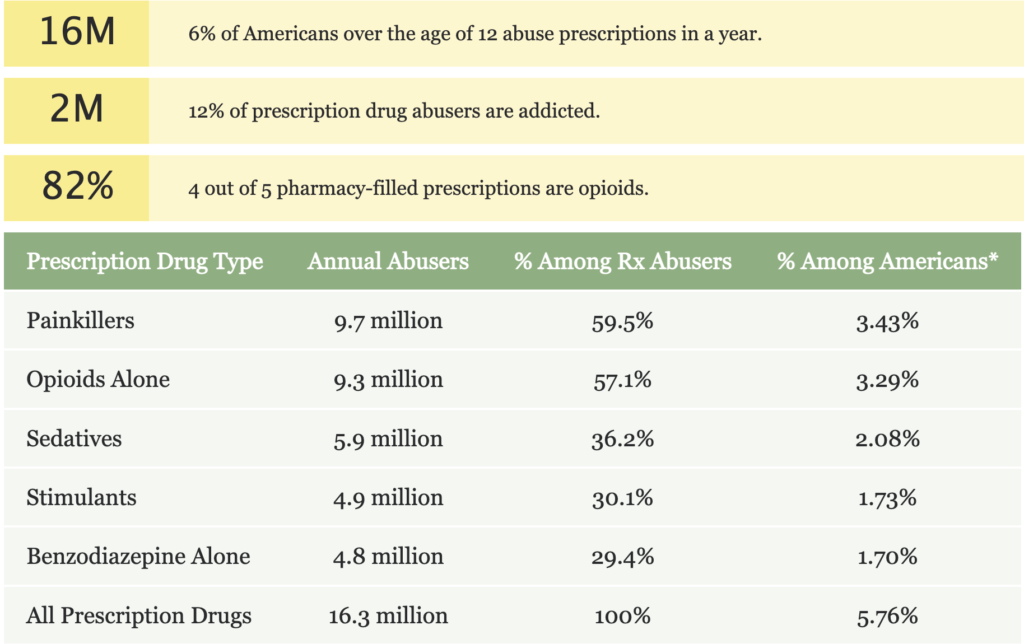Ativan is a benzodiazepine medication that the FDA approved in 1977. It’s used to treat anxiety and insomnia, but it’s also frequently misused by people who want to get high. Ativan abuse can lead to addiction, which may require professional treatment for adults and teenagers.
Ativan is a benzodiazepine medication that the FDA approved in 1977.
Ativan is a benzodiazepine drug that the FDA approved in 1977. It’s used to treat anxiety and insomnia, and doctors prescribe it.
Ativan can be addictive if you take it for nonmedical reasons. You may be tempted to abuse this medication because of its sedative properties; however, Ativan abuse can lead to serious side effects like an overdose or overdose symptoms (see below). In addition, the risk of addiction is exceptionally high if you’re using other drugs or alcohol with your Ativan usage.
How does Ativan work?
Ativan is a benzodiazepine that enhances the effects of a neurotransmitter called GABA in the brain. The GABA neurotransmitter has an inhibitory effect on the central nervous system, which helps to calm and relax you.
Ativan is the brand name for a tranquilizer (lorazepam) intended to treat acute anxiety. This prescription drug’s most significant appeal is its rapid onset; Ativan users are intoxicated within minutes of ingesting it.
What are the signs and symptoms of Ativan abuse?
The signs and symptoms of Ativan addiction vary depending on the user. Although many people experience insomnia and drowsiness due to drug use, these alone are not enough to indicate abuse. But if you suspect that you or someone you know is abusing Ativan, call Passages Malibu today at (888) 397-0112.
- Difficulty sleeping or trouble falling asleep
- Drowsiness
- Slurred speech
- Confusion
- Memory loss
- Impaired judgment
- Delirium
- Hallucinations
- Depression
- Anxiety
What are the side effects of Ativan?
Ativan can cause side effects. Some of the most common side effects of Ativan include the following:
- Drowsiness
- Confusion
- Dizziness
- Memory problems
- Nausea and vomiting (stomach pain)
- Constipation (trouble passing stool) or diarrhea (loose stools) – drinking plenty of water helps avoid constipation, as does eating a high-fiber diet with plenty of fruits and vegetables.
How common is an addiction to Ativan?
While many people who take Ativan do not become addicted to it, the drug is highly addictive. As a result, Ativan is one of America’s most commonly abused benzodiazepines.

Why is Ativan so addictive?
Ativan is a benzodiazepine that affects the brain, making it hard to stop taking it.
Benzodiazepines are sedatives used to treat anxiety, insomnia, seizures, and muscle spasms. Ativan is prescribed for treating anxiety disorders and muscle relaxants.
Ativan works by increasing levels of GABA (gamma-aminobutyric acid), a neurotransmitter that helps regulate mood and anxiety; however, this can lead to dependence on Ativan as your body becomes dependent on these increased levels of GABA. In addition to increasing the amount of GABA in your system, Ativan also has an inhibitory effect when acting through its receptors. These effects explain why it may be difficult for some people with chronic pain or sleep problems to stop taking this drug once they’ve begun using it regularly.
How dangerous is it to quit using or suddenly stop taking Ativan?
A common concern among people who abuse Ativan is the problem of withdrawal. Withdrawal can be difficult, leading to severe symptoms such as anxiety, depression, insomnia, and seizures. These symptoms are dangerous to your health and may even be life-threatening.
If you stop taking Ativan suddenly, you will likely experience these withdrawal symptoms. However, if you have been taking the drug for some time, your body has become accustomed to it, and stopping suddenly will not cause as severe withdrawal symptoms as if you had just started taking it recently. If your doctor prescribes clonazepam for you, then this medication could assist with withdrawing from Ativan. However, discuss this option with them first so they can tell if it’s appropriate for your situation.
How common is an overdose from Ativan?
Ativan has been one of America’s most popular prescription drugs for decades. It’s commonly prescribed to treat anxiety and insomnia, but it is also abused recreationally by people who find its sedative effects pleasurable.
The risk of overdose increases if you mix Ativan with other drugs or alcohol because they will cause your breathing to slow down further than usual. This can quickly lead to death if it continues for too long without medical assistance.
What are the risk factors for becoming addicted to Ativan?
It’s important to note that risk factors for addiction don’t always mean you’ll become addicted. However, they do increase your chances of developing a substance abuse issue.
- You struggle to cope with current conditions and use drugs and alcohol.
- A chemical imbalance that can lead to depression, anxiety, and other mental health conditions.
- Family history of addiction: If your parents were addicted to drugs or alcohol and abused them while growing up, this can increase your risk of having a substance abuse issue. This could happen because children often model their behaviors after their parent’s actions.
- History of trauma or abuse: Having been through traumatic experiences as a child increases your chance of developing drug abuse problems later on in life because these experiences can change how our brains function and lead us to use substances as self-medication when we’re feeling stressed out or anxious about something else going on in our lives.
- Denial that you are or could become addicted to the drug.
Who should not take Ativan?
People with a history of drug or alcohol abuse
Ativan is classified as a Schedule IV controlled substance by the Drug Enforcement Administration (DEA). This means that it has a low potential for abuse and dependence. However, if you have ever abused drugs or alcohol, you should not take Ativan because this could cause increased cravings for other substances.
People with mental illness
If you are considering taking an antidepressant medication such as Ativan because of severe depression symptoms but also have a history of substance abuse problems (including alcohol), talk about other treatment options first with your doctor before deciding whether or not drugs need help improving your symptoms.
At Passages Malibu, we focus on identifying and healing the underlying conditions of addiction and mental health issues. Our treatment approach is unique in that we use a combination of cognitive-behavioral therapy and mindfulness to help individuals break free from addiction and destructive patterns. If you or someone you know needs help, please contact us at (888) 397-0112.
What can be done if I think my loved one has a problem with Ativan? I want to help, but I don’t know how.
If you think your loved one may have developed an addiction, there are a few ways you can help them find treatment. First, encourage them to get a physical exam from their doctor. The doctor can give them the information they need on whether or not they will benefit from Ativan treatment options. Suppose the situation is severe enough that their doctor recommends detoxification (detox) or rehabilitation (rehab). In that case, it’s time to find a facility where they can receive these services, such as Passages Malibu or Passages Ventura.
It’s critical you understand addiction and exactly how it works – and what it takes to overcome it once and for all.
Most people are familiar with the signs of addiction and substance abuse. But many don’t realize they can be just as dangerous to your health as other drugs. And it’s critical you understand addiction and exactly how it works – and what it takes to overcome it once and for all.
Ativan is a benzodiazepine that is both addictive and can be dangerous. Benzodiazepines are prescribed to treat anxiety disorders, sleep disorders, panic attacks, and seizures because they quickly slow down brain activity in certain areas. Unfortunately, users often become dependent on these drugs after taking them for an extended period of time. This dependence leads to tolerance – where higher doses are needed for the same effect – followed by withdrawal symptoms if someone stops taking their medication suddenly or abruptly stops using it altogether (this is known as discontinuation).
Conclusion
Ativan is a drug that doctors prescribe to help with anxiety and insomnia. However, despite its benefits, Ativan can also be dangerous and addictive. If you or someone you love is using Ativan recreationally or has become dependent, they must seek professional help immediately.


